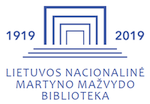Prof. Luiz Oosterbeek
One word seems to characterize the first quarter of the 21st century: disruption. In all domains, from global environmental acceleration to growing territorial disputes, moving through the absence of a stable currency exchange mechanism, uncertainty in the labour market, fading out of educational services and traditional teaching and learning methods, cultural tensions, climatic changes requiring disputed adaptations, migrations, raising of social inequality, geostrategic re-alignments, questioning of all models derived from the previous two centuries, economic disparate interests and global political unrest and conflictual trends. While mediatic discourse tends to oscillate between catastrophic and enthusiastic expectations in face of the new digital revolution and artificial intelligence, often approached as external entities invading the human sphere, this global depression context is requiring a new fundamental and strategic understanding, based on the informed and critical capacity of citizens, so that adaptations may become the result of convergent efforts anchored in cultural diversity. A lengthy disruption, as the current one, provides only one certain outcome for the future: it will be uncertain and, likely, quite different from whatever one may imagine. This is why society requires not mere solutions for present problems, even if these are needed too, but a strategy that may focus on the nature of the processes of social transformations and adaptation, and not as much on targets for a future we cannot clearly foresee. We know, based on the assessment of past disruptive phenomena, from the dawn of agriculture to the outcomes of the previous depressions in the 17th, 18th and 19th centuries, that any future will encompass the re-organization of territories and of their populations. Doing this in peace is, hence, the biggest challenge of the century. Understanding and organizing clusters of knowledge and identity within the territories is certainly crucial in this context, and for that one needs mapping of those clusters. In a society where diversity tends to refuse doing this around political, economic or religious entities, themselves affected by disruptive processes, one needs to turn to basic units of knowledge that may serve the purpose of bringing together potentially different and even conflicting groups and interests. This is, more than ever before, the key role of libraries, not only providing access to information and culture, but making full use of digital technologies while explaining there is no substitute for tangible materials, such as books, if one wishes to be more than a consumer and to be able to have an effective saying in his or her own future. While formal spaces of education and industry tend to be conservative and grounded on past experiences, libraries are storing knowledge and may encourage experimentation, which enhances critical reasoning and favours the building of flexible, adaptive, individual profiles. Not only central libraries, but any other libraries, have the responsibility to become the core component, with the education system, of integrated and sustainable territorial development.
